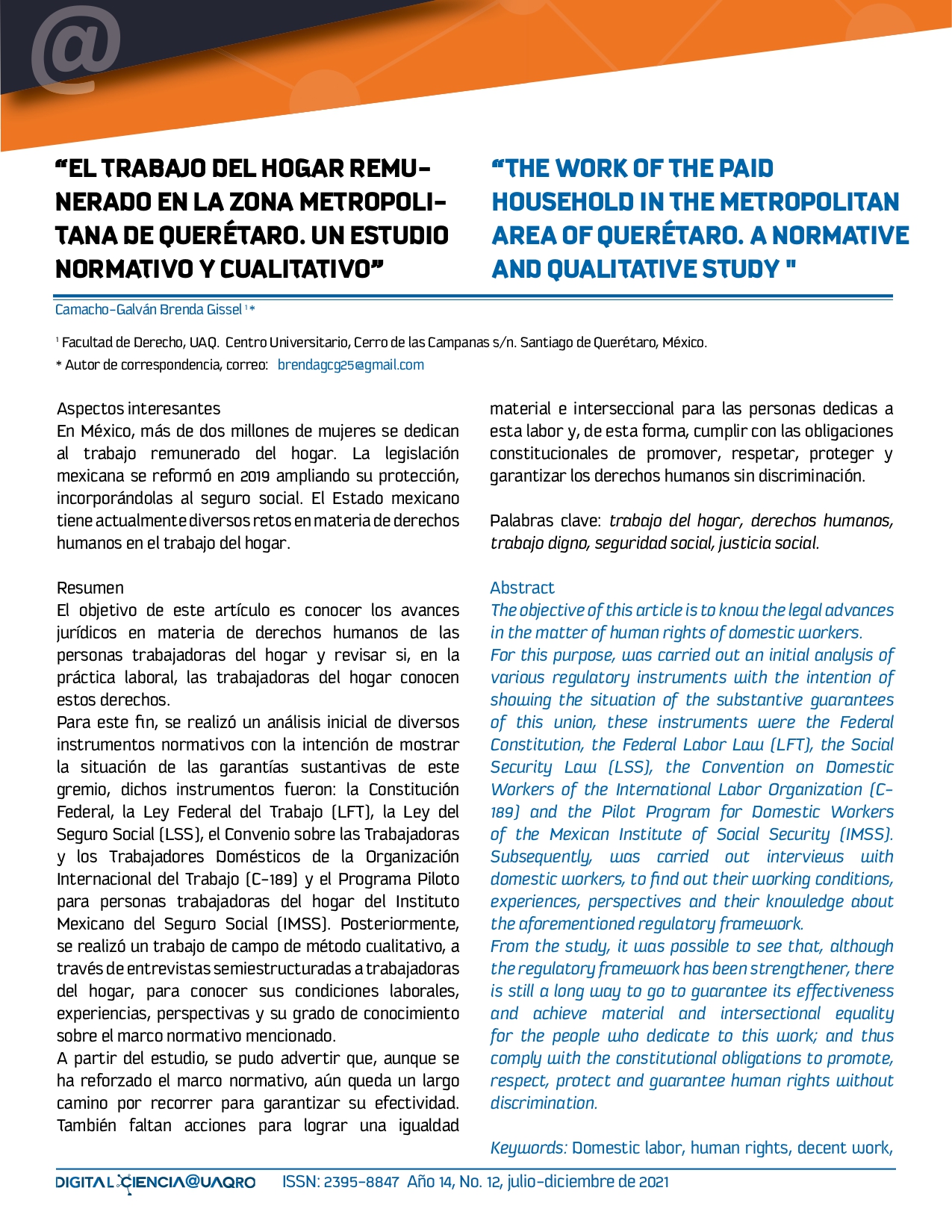Abstract
The objective of this article is to know the legal advances in the matter of human rights of domestic workers.
For this purpose, was carried out an initial analysis of various regulatory instruments with the intention of showing the situation of the substantive guarantees of this union, these instruments were the Federal Constitution, the Federal Labor Law (LFT), the Social Security Law (LSS), the Convention on Domestic Workers of the International Labor Organization (C- 189) and the Pilot Program for Domestic Workers of the Mexican Institute of Social Security (IMSS). Subsequently, was carried out interviews with domestic workers, to find out their working conditions, experiences, perspectives and their knowledge about the aforementioned regulatory framework.
From the study, it was possible to see that, although the regulatory framework has been strengthener, there is still a long way to go to guarantee its effectiveness and achieve material and intersectional equality for the people who dedicate to this work; and thus comply with the constitutional obligations to promote, respect, protect and guarantee human rights without discrimination.

This work is licensed under a Creative Commons Attribution-NonCommercial 4.0 International License.
Copyright (c) 2021 Digital Ciencia@UAQRO

